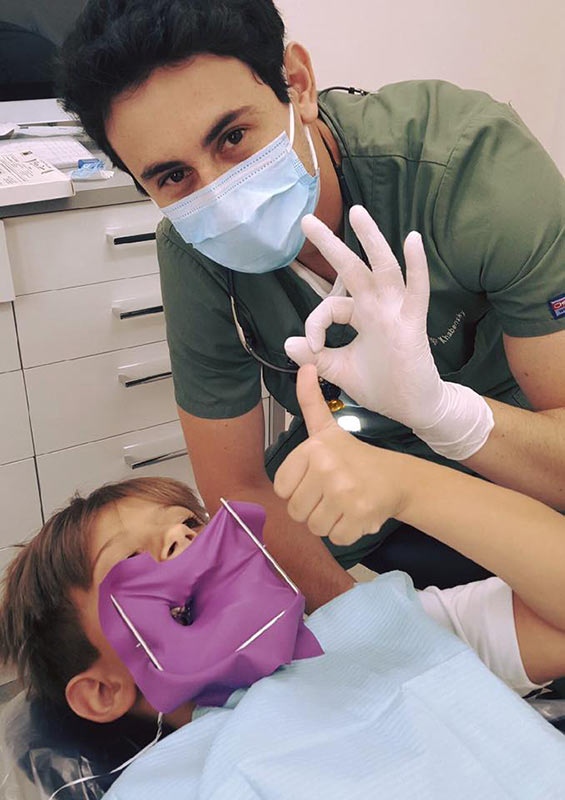Why You Must Pick a Local Dentist Eugene for Personalized Care
Why You Must Pick a Local Dentist Eugene for Personalized Care
Blog Article
An Overview to Usual Oral Conditions That Require a Dental professional's Care
Toothaches, for example, can be symptomatic of severe concerns such as cavities, broken teeth, or abscesses, each requiring certain interventions like dental fillings or origin canals. Influenced wisdom teeth and jaw problems can present considerable pain and complications.
Toothaches
Toothaches are an usual dental problem that can vary from moderate discomfort to serious pain, often indicating a hidden issue that needs specialist attention. This pain can stem from a variety of sources, consisting of oral cavities, broken or fractured teeth, and dental abscesses. Each of these problems poses substantial risks if left neglected, potentially bring about more serious problems.
Tooth decays, also referred to as cavities, are created by the accumulation of plaque that deteriorates tooth enamel, causing holes or pits in the affected teeth. Cracked or fractured teeth, on the various other hand, might result from trauma, grinding, or biting into tough items. These architectural damages can subject the sensitive inner layers of the tooth, causing pain and boosting the risk of infection. Abscesses are unpleasant infections at the origin of a tooth or between a tooth and the gum tissue, generally resulting from severe decay or unattended tooth cavities.
Effective treatment of toothaches involves addressing the origin cause. This might consist of fillings for dental caries, crowns for split teeth, or root canals and anti-biotics for abscesses. Early intervention by a dental professional can avoid more wear and tear and alleviate pain, ensuring ideal oral health.
Gum Condition

The main root cause of gum tissue disease is microbial plaque, a sticky, colorless film that constantly bases on teeth. Poor oral hygiene, smoking, genetic tendency, and certain clinical conditions, such as diabetes mellitus, can aggravate the danger of establishing gum tissue condition. Normal oral examinations are vital for very early detection and monitoring of this problem.
Therapy for periodontal condition varies from professional dental cleansing and scaling to advanced procedures like origin planing and gum surgical treatment, depending upon the intensity. Maintaining good dental hygiene practices, consisting of cleaning twice daily, flossing, and making use of an antiseptic mouth wash, can substantially reduce the risk of periodontal disease and promote much healthier periodontals.
Cavities
Dental caries, additionally understood as dental caries, are a common oral problem characterized by the destruction of tooth enamel as a result of acid-producing germs in the mouth. These microorganisms thrive on sugars and starches from food and beverages, generating acids that slowly wear down the enamel, bring about tooth cavity development.
Early-stage cavities may not reveal signs, but as they proceed, they can create tooth pain, sensitivity to chilly or hot, noticeable openings or pits in the teeth, and staining. If left unattended, cavities can penetrate much deeper layers of the tooth, possibly leading to extreme discomfort, infection, and even missing teeth.
Stopping dental caries includes a mix of excellent dental hygiene methods and dietary routines. Normal cleaning with fluoride tooth paste, flossing, and routine oral examinations are important. Dental professionals might additionally suggest added preventative measures, such as fluoride therapies and oral sealants, to shield teeth from decay.
Small cavities can be attended to with dental fillings, which restore the tooth's structure. More advanced situations might need crowns or even root canal treatment if the decay has actually reached the tooth's pulp.
Impacted Knowledge Teeth
Impacted knowledge teeth are a common oral problem that takes place when the third molars, generally described as knowledge teeth, fail to completely emerge or align correctly within the mouth. This problem usually results from inadequate room in the jaw or an uncommon growth angle of the teeth. Affected wisdom teeth click for source can bring about a selection of difficulties, consisting of pain, infection, and damages to adjacent teeth.
When discover this wisdom teeth become affected, they are commonly partly erupted or remain entirely below the gum line. This partial eruption can create a path for germs to go into the periodontals, causing infections that show up as swelling, discomfort, and even fever (dentist in eugene oregon). Additionally, impacted knowledge teeth can exert pressure on surrounding teeth, possibly triggering crowding or shifting
An extensive dental evaluation, commonly involving X-rays, is important for identifying influenced wisdom teeth. Therapy usually entails surgical removal, carried out by a dental cosmetic surgeon. The treatment aims to relieve discomfort and protect against further difficulties, such as cysts or damage to bordering bone frameworks. Post-operative treatment is important to ensure proper recovery and lessen the read threat of infection. Regular oral check-ups are recommended to check the problem and maintain dental wellness.
Jaw Disorders
Final Thought

Oral tooth cavities, additionally known as decays, are triggered by the accumulation of plaque that deteriorates tooth enamel, leading to holes or pits in the influenced teeth. Abscesses are agonizing infections at the origin of a tooth or in between a tooth and the periodontal, generally resulting from serious degeneration or untreated cavities.
Affected knowledge teeth are a widespread dental concern that takes place when the 3rd molars, commonly referred to as wisdom teeth, stop working to completely emerge or align correctly within the mouth. Influenced knowledge teeth can lead to a range of issues, including discomfort, damage, and infection to nearby teeth.
In addition, impacted wisdom teeth can exert pressure on neighboring teeth, possibly creating crowding or changing.
Report this page